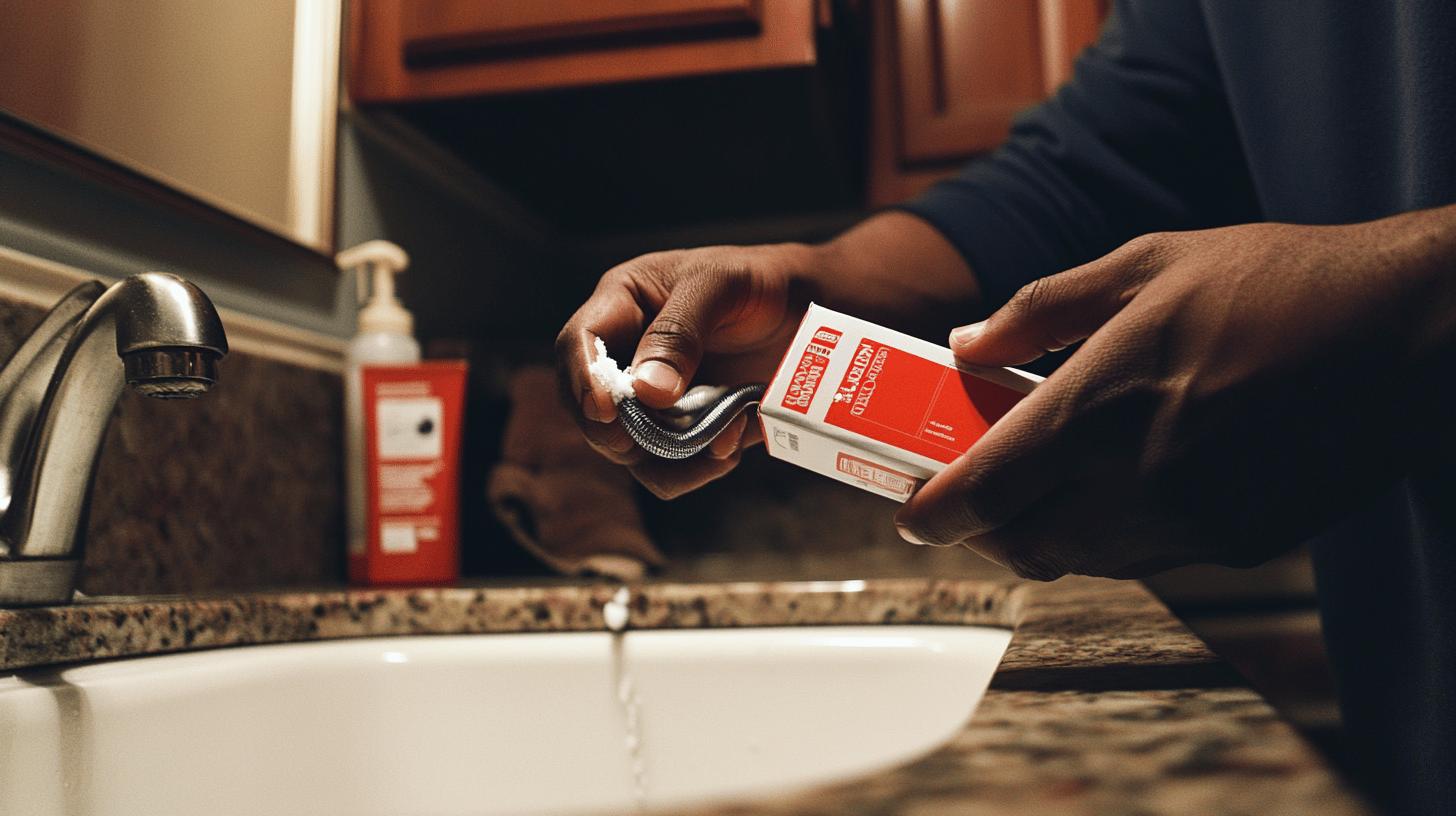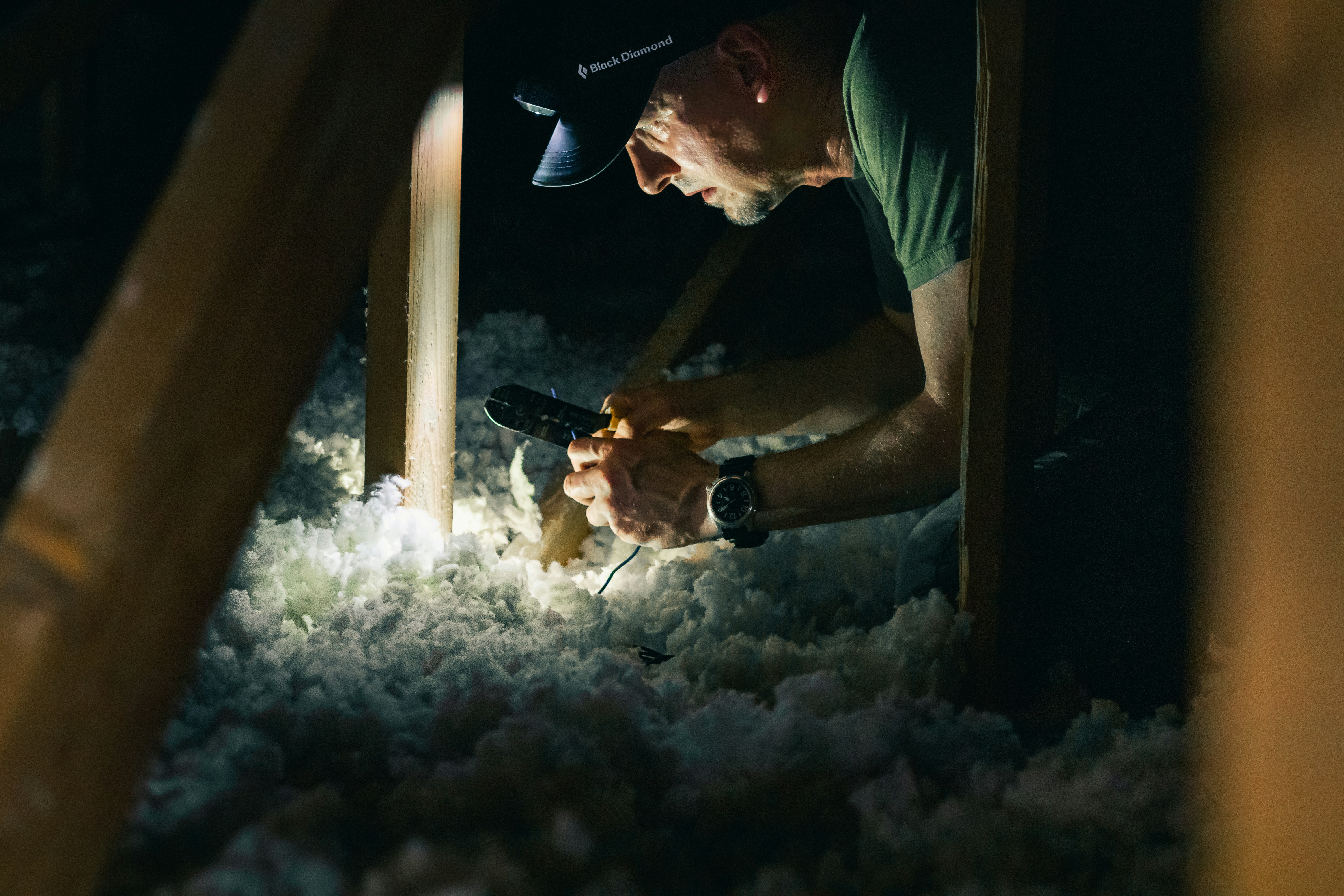TL;DR:
- Common Causes of Blockages: Tree roots, soap scum, hair, excessive toilet paper, food scraps, grease, pipe misalignment.
- DIY Methods: Use boiling water, dish soap, baking soda, vinegar, or bleach with a plunger for minor clogs.
- Professional Solutions: Plumbers use drain cameras, hydro-jets, cable cleaning machines for severe blockages.
- Prevention Tips: Install drain strainers, educate on proper disposal, regularly flush with boiling water, and schedule inspections.
- When to Call a Plumber: Signs like bad odors, slow drainage, or persistent clogs may indicate complex issues requiring professional help.
Is your sink draining slower than molasses? Plumbing clogs are super common and can really mess with your day. But before you call a plumber, check out some DIY tricks that might work. From a backed-up toilet to a slow kitchen sink, this guide covers easy ways to clear blockages. You’ll find out how to use common household items to get the water flowing again, saving you both time and money.
Understanding Common Plumbing Blockages
Clogged pipes are frustrating, and a few usual suspects are often behind them. Tree roots can sneak into pipes through tiny cracks, causing big blockages. In bathrooms, soap scum and hair build up and slow down drains. Using a lot of toilet paper, especially in older systems, can lead to toilet clogs. Misaligned or broken pipes, often from improper installation, also cause blockages.
Each type of drain tends to have its own issues. Bathroom drains get clogged with hair and soap, slowing drainage. Kitchen sinks deal with food scraps and grease, needing regular cleaning. Toilets can overflow from too much toilet paper or foreign objects, risking water damage if not quickly fixed. Knowing what causes these clogs can help you decide on the right DIY fix or when to call in a pro.
- Tree Roots: Crack pipes and cause severe blockages.
- Soap Scum and Hair: Clog bathroom drains.
- Excessive Toilet Paper: Mainly clogs toilets.
- Food Scraps and Grease: Lead to kitchen sink blockages.
- Pipe Misalignment or Breakages: Often stem from poor installation.
Effective DIY Plumbing Blockage Methods

You can handle minor plumbing clogs with simple items you probably already have at home. Boiling water, dish soap, baking soda, vinegar, and bleach can be surprisingly effective. Keep a plunger and a wire hanger handy too—they’re perfect for clearing clogs in sinks and toilets.
Here’s a quick rundown on using these DIY methods: Pour dish soap down a grease-clogged drain, then flush with boiling water to break up the grease. Or try sprinkling baking soda in the drain, add vinegar, wait 15 minutes, and rinse with hot water. For tougher clogs, pour a little bleach, wait 10 minutes, and rinse with hot water. Finish with a plunger for the best results.
Always stay safe—keep the area ventilated when using bleach, don’t mix it with other chemicals, wear gloves, and be careful with hot water to avoid burns. If the clog doesn’t clear, it’s best to call a professional before causing more damage.
| Method | Materials Needed | Effectiveness |
|——————-|——————————-|—————-|
| Boiling Water | Water, Kettle | Moderate |
| Dish Soap & Water | Dish soap, Boiling water | Moderate |
| Baking Soda & Vinegar | Baking soda, Vinegar, Water | High |
| Bleach | Bleach, Water | High |
Professional Plumbing Blockage Solutions
For really tough clogs, calling a plumber is often your best bet. Pros have the skills to handle blockages that DIY tricks can’t fix, getting rid of the clog and finding the cause to prevent future issues. This saves you time, stress, and money in the long run.
Plumbers also bring advanced tools for the job. Drain cameras let them check inside pipes, hydro-jets blast clogs away with high-pressure water, and cable machines use sharp blades to cut through tough blockages. These tools make sure your plumbing stays clear and reliable, making professional help worth it for big jobs.
- Drain Cameras: Inspect pipes to find blockages.
- Hydro-Jets: Clear tough clogs using high-pressure water.
- Cable Cleaning Machines: Cut and clean blockages.
- Plumbing Snakes: Reach deep to remove obstructions.
Preventive Measures for Avoiding Plumbing Blockages

Knowing what should and shouldn’t go down the drain can really cut down on clogs. Grease, food scraps, and too much toilet paper are some of the biggest culprits. Reminding everyone in the house can help keep plumbing running smoothly.
Regular maintenance also helps a lot. Pouring boiling water down the drain can dissolve small buildups, and occasional baking soda and vinegar flushes clean pipes naturally. Scheduling regular plumber checkups catches issues early, saving you from big repair bills.
Investing in a few tools is worth it too. Drain strainers catch hair and food before they clog pipes, while a drain snake clears minor blockages. For homes with hard water, a water softener can prevent mineral buildup. These simple habits and tools keep your plumbing system in top shape for longer.
- Install drain strainers to catch debris.
- Educate on proper disposal.
- Flush with boiling water regularly.
- Use baking soda and vinegar for cleaning.
- Schedule plumbing inspections.
When to Call a Professional Plumber
How do you know when it’s time to call a plumber? If you’re noticing bad smells, slow drainage, or signs of water damage that won’t go away, you might have a serious blockage. When plunging or using a drain snake doesn’t fix it, it could be a more complicated issue.
Hiring a plumber has its perks. They come equipped with tools and expertise that go beyond DIY methods. Plumbers use techniques like camera inspections and hydro-jetting to pinpoint and fix problems fast, preventing future issues and possibly saving you from bigger, more expensive repairs down the road.
Final Words
Dealing with plumbing clogs starts by knowing what causes them, like tree roots or soap buildup in sinks, toilets, and showers. DIY fixes—like pouring boiling water or using baking soda—can work for small clogs, but remember to follow safety steps.
For tougher clogs, professional help is best. Pros use tools like hydro-jets and cameras to clear and inspect pipes. Regular maintenance and a bit of prevention can help avoid blockages entirely. Knowing when to bring in a plumber helps keep your plumbing running smoothly and hassle-free.
FAQ
What are the best ways to unblock pipes?
To unblock pipes, use a plunger, pour boiling water, or use a mix of baking soda and vinegar. For stubborn clogs, a plumber’s snake or drain cleaning tool is effective.
How do you clear a clogged drain with standing water?
Clear a clogged drain with standing water by using a plunger or a solution of baking soda and vinegar. Let it sit, then pour boiling water to wash away the blockage.
How to unblock drains outside?
To unblock outside drains, remove the cover and clear visible debris. Use a hose to flush the drain or employ a drain rod to dislodge deeper blockages.
What do professionals use to unblock drains?
Professionals use hydro-jets, cable cleaning machines, and drain cameras to effectively clear drains. These tools allow for safe removal of blockages and pinpointing of issues.
How to clear a main pipe blockage?
Clearing a main pipe blockage involves a professional assessment, often using camera inspections and hydro-jetting, to ensure thorough cleaning and re-establish normal flow.
How do plumbers clear blockages?
Plumbers clear blockages using specialized tools like cable cleaning machines, hydro-jetting equipment, and sometimes drain cameras to accurately locate and remove obstructions.
How to clear a PVC pipe blockage?
Clear a PVC pipe blockage with baking soda, vinegar, and a flush of hot water. Avoid harsh chemicals as they can damage PVC. Use a plumber’s snake for persistent issues.
How to clear a clogged drain home remedy?
To clear a clogged drain at home, pour a solution of baking soda and vinegar followed by hot water. This natural method helps dissolve organic materials causing clogs.
What is the best tool to unclog drains?
The best tool to unclog drains is a plumber’s snake or a drain auger. These tools effectively remove and dislodge hair, soap, and other debris.

